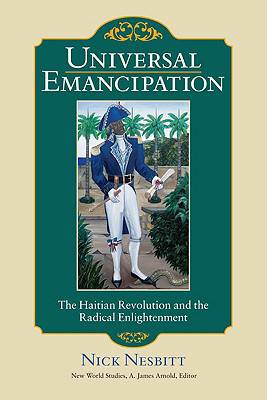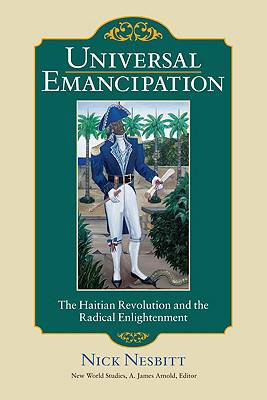
- Retrait gratuit dans votre magasin Club
- 7.000.000 titres dans notre catalogue
- Payer en toute sécurité
- Toujours un magasin près de chez vous
- Retrait gratuit dans votre magasin Club
- 7.000.0000 titres dans notre catalogue
- Payer en toute sécurité
- Toujours un magasin près de chez vous
Description
Unlike the American and French Revolutions, the Haitian Revolution was the first in a modern state to implement human rights universally and unconditionally. Going well beyond the selective emancipation of white adult male property owners, the Haitian Revolution is of vital importance, Nick Nesbitt argues, in thinking today about the urgent problems of social justice, human rights, imperialism, torture, and, above all, human freedom.
Combining archival research, political philosophy, and intellectual history, Nesbitt explores this fundamental event of modern history--the invention of universal emancipation--both in the context of the Age of Enlightenment (Spinoza, Rousseau, Kant, Hegel) and in relation to certain key figures (Rancière, Laclau, Habermas) and trends (such as the turn to ethics, human rights, and universalism) in contemporary political philosophy. In doing so, he elucidates the theoretical implications of Haiti's revolution both for the eighteenth century and for the twenty-first century. Universal Emancipation will be of interest not only to scholars and students of the Haitian Revolution and postcolonial francophone studies but also to readers interested in critical theory and its relation to history and political science.
Spécifications
Parties prenantes
- Auteur(s) :
- Editeur:
Contenu
- Nombre de pages :
- 288
- Langue:
- Anglais
- Collection :
Caractéristiques
- EAN:
- 9780813928029
- Date de parution :
- 01-12-08
- Format:
- Livre relié
- Format numérique:
- Genaaid
- Dimensions :
- 157 mm x 234 mm
- Poids :
- 544 g

Les avis
Nous publions uniquement les avis qui respectent les conditions requises. Consultez nos conditions pour les avis.






